Heating Nozzle: A Complete Guide to Industrial Heating Solutions
A heating nozzle is a specialized component used in welding, cutting, and industrial heating applications. It helps direct and regulate heat flow, ensuring precise and efficient performance in metalworking, plastic processing, and other high-temperature applications.
Whether you’re using oxy-fuel torches, hot air guns, or industrial heaters, selecting the right heating nozzle is crucial for consistent and controlled heat distribution.
What is a Heating Nozzle?
A heating nozzle is a device that focuses and controls the flow of heat generated by a torch, heater, or similar equipment. It plays a critical role in processes like:
- Metal heating before welding
- Plastic molding and forming
- Soldering and brazing
- Heat shrink tubing applications
These nozzles are made from high-temperature-resistant materials like stainless steel, brass, or ceramic, ensuring durability in extreme heat conditions.
Types of Heating Nozzles
1. Oxy-Fuel Heating Nozzles
- Used in welding and metal fabrication.
- Designed for preheating metal before cutting or welding.
- Commonly found in acetylene, propane, and natural gas torches.
2. Hot Air Nozzles
- Used in plastic welding, drying, and de-soldering.
- Designed for heat guns and hot air stations.
- Ideal for electronic repairs and industrial drying processes.
3. Soldering Nozzles
- Used in soldering and brazing applications.
- Ensures controlled heat application for delicate work.
- Common in electronics, plumbing, and HVAC industries.
4. Injection Molding & Extrusion Nozzles
- Used in plastic processing industries.
- Helps in melting and shaping plastic materials.
- Ensures uniform heat distribution in manufacturing.
Applications of Heating Nozzles
1. Metalworking & Welding
- Preheats metal for better welding penetration.
- Used in oxy-fuel cutting for precise metal shaping.
2. Plastic Welding & Forming
- Used for heat shrinking and thermoplastic bonding.
- Essential in car bumper repair, flooring installation, and packaging.
3. Soldering & Brazing
- Ensures controlled heating for delicate joints.
- Used in circuit board repairs, plumbing, and jewelry making.
4. Industrial & HVAC Applications
- Helps in pipe thawing, paint stripping, and drying.
- Used in heat-sealing and shrink-wrapping processes.
How to Choose the Right Heating Nozzle
- Determine the Application – Select a nozzle based on its intended use (e.g., welding, soldering, or plastic forming).
- Check Material Compatibility – Ensure it works with your heat source (e.g., propane, acetylene, or hot air).
- Consider Heat Output & Size – Choose a nozzle that provides the required heat intensity and coverage.
- Look for Durability – Opt for high-quality, heat-resistant materials for longevity.
- Ensure Compatibility with Equipment – Verify thread size and mounting style to match your tool.
Safety Tips for Using Heating Nozzles
✔ Wear Heat-Resistant Gloves & Eye Protection – Prevents burns and injuries.
✔ Use in a Well-Ventilated Area – Avoids inhaling fumes.
✔ Check for Gas Leaks or Damage – Ensures safe operation in oxy-fuel torches.
✔ Follow Manufacturer Guidelines – Use at the recommended temperature settings.
Conclusion
A heating nozzle is an essential tool in welding, soldering, plastic molding, and industrial heating. Choosing the right nozzle ensures efficiency, precision, and safety for your application. Whether you’re in metal fabrication, electronics, or HVAC, investing in the right heating nozzle can improve your work quality and productivity.
